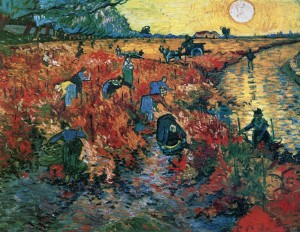Isaiah 5:1-17
This text is used for the Lectionary Year C on August 14, 2016.

Isaiah sings for his beloved. His beloved is the Lord. Consistent to Isaiah, he does not speak as himself or for himself, but as the Lord, for the Lord. In this regard, Isaiah has more speech on behalf of the Lord than either Jeremiah or Ezekiel; as in Isaiah 30:1, where he expresses a deep woe for the Lord about the stubborn sons and daughters bearing witness to the word of the Lord.
In this fashion Isaiah sings to the beloved while being overheard in the camp of the rebellious. The song is a lament by the God who so hurt in his heart (borrowing a frequently used Native American expression for our creator’s deep love in sending his son to die for us). Singing a love song Isaiah expresses the disappointment of the Lord. Their disenchantment brings a stiff word of judgment upon the people. Hear the sound of this song in its reading. It sounds like the deep cords of a cello echoing from a heart that has been broken. As part of your worship the reading of this text could very well be followed by the playing of a deeply sad but lovely lament on the cello offering a time of confession. When the beauty of God’s heart is revealed we can be empowered to muster the courage that is required to make confession.



